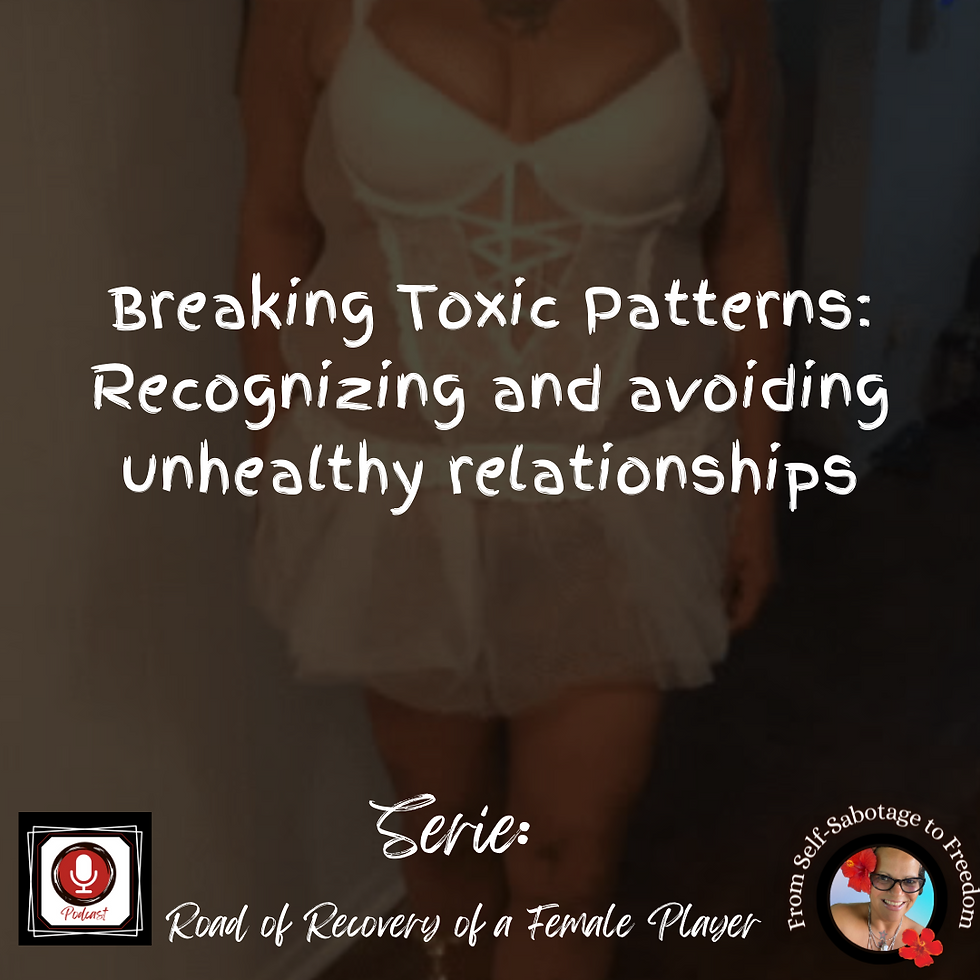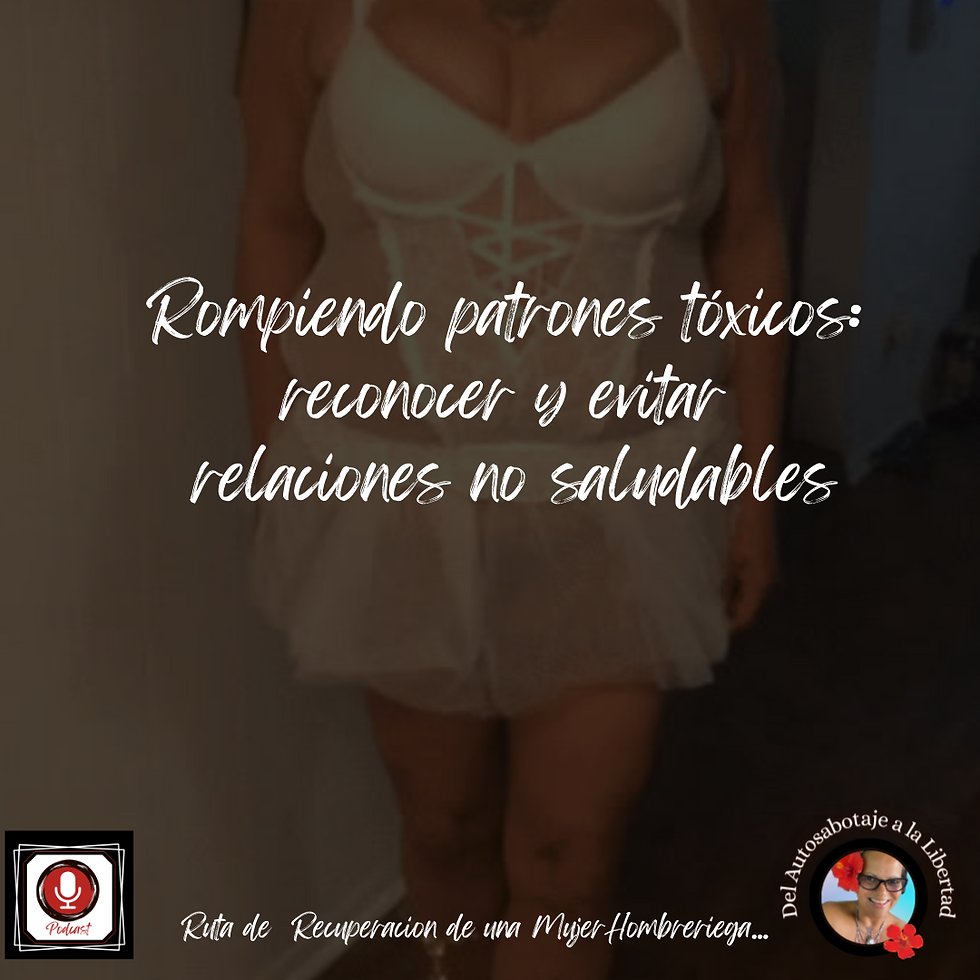
Because of our inherent social nature, the bonds we have with one another are important to our well-being. Having friends and family who love and support you can bring you happiness, strength, and chances to grow. However, not all partnerships are made equal, and some can be unhealthy and detrimental to our health and happiness. Our ability to recognize destructive patterns in our relationships and to make a clean break from them is fundamental to our mental and emotional wellness. This article will define toxic patterns, explain their emergence, provide strategies for recognizing them, and offer advice for escaping their grip.
Essential features of harmful routines
Relationship patterns that are toxic can be disguised as many things, making them hard to identify. They often reveal themselves subtly, making it difficult to break away once we realize we are enmeshed in one. These patterns appear in many types of relationships, not just romantic ones, but also those inside families and among friends. Keep a watch out for the following common yet potentially dangerous patterns:
1. Codependency: Codependent relationships involve an unhealthy reliance on one another for emotional affirmation and support. The well-being of one person may be sacrificed for the sake of another's achievement, leading to a vicious cycle of enabling and reliance.
2. Manipulation: One person attempts to exert control and influence over another by lying to them, exploiting their guilt, or indulging in emotional blackmail in manipulative relationships. Long-term effects on trust and self-worth may emerge from this.
3. No restrictions or limits Healthy relationships have clear limits that recognize and respect each person's independence and autonomy. This lack of boundaries can lead to emotional and physical abuse in toxic relationships.
4. Constant Competition: Conflict and unresolved concerns are hallmarks of a toxic relationship, which occurs despite the fact that disagreements are normal in any pairing. This constant change might emotionally drain a person if they are always under stress.
5. Isolation is a common result of being in a toxic relationship since it makes it hard for one person to reach out to their friends and family for help or advice.
6. In the most extreme cases, abusive relationships can take the shape of either verbal aggression or physical violence, causing harm to the victim's body and mind.

What causes unhealthy routines to form initially?
Avoiding repeating negative behaviors requires an understanding of where such behaviors came from. Our personal histories and life experiences often provide the foundation for these ingrained patterns. Some of the factors that contribute to the persistence of harmful routines are as follows.
1. Life Experiences: The ties we develop as children with our primary caregivers and other members of our families can have long-lasting effects on our adult social interactions. It's probable that if we grew up in a family or community with dysfunctional dynamics, we can unconsciously bring those same tendencies into our adult relationships.
2. Low Self-Esteem: People with low self-esteem may be more likely to engage in unhealthy relationships because they may feel unworthy of being in mutually respectful and nourishing relationships.
3. The fear of being alone: Some people remain in toxic relationships because they are terrified to be alone. Instead of trying something new, they'd rather stay in a relationship that isn't working.
4. Traumas that have not been addressed Traumatic experiences, such as abuse or neglect, can leave emotional scars that make it difficult to form healthy bonds with others. These scars can either draw us toward or keep us in toxic pairings.
5. Societal and cultural elements that exacerbate the problem: It's probable that societal norms and cultural expectations have a major role in sustaining unhealthful practices. For example, the unequal distribution of power in romantic relationships may be exacerbated by traditional gender standards.
Recognizing Destructive Behavior Patterns
The first step toward changing destructive patterns in your relationships is realizing there are problems. To be successful, one must cultivate awareness, introspection, and the strength to embrace uncomfortable realities. Some of these signs may indicate that your current relationship is not good for you:
1. You're Tired All the Time: Feelings of emotional exhaustion, anxiety, and depression are common among those in toxic relationships. If you consistently feel worse after interacting with the same individual, that could be a red flag.
2. You Give Up What You Really Need: In healthy relationships, each person's wants and needs are considered and respected. Putting the other person's needs before your own is a common pattern in unhealthy relationships.
3. You Never Speak Openly About How You Feel: You always walk on eggshells when talking about how you feel because you are afraid of the other person's reaction.
4. Toxic people may try to maintain power and influence over you by cutting you off from your loved ones and social networks. If you find that you are gradually withdrawing from others, this is a serious warning sign.
5. You Disregard Warnings: Even Though They Are There: One or both partners in an unstable relationship are likely to dismiss or justify the other's problematic actions. Trust your instincts and pay attention to the indicators that are being presented to you.
6. You Feel powerless: When in an Unhealthy Relationship It's typical to feel powerless and unable to change the dynamic of an unhealthy relationship. It's crucial to pay attention to feelings of helplessness.
Cutting Tied-Up Knots and Finding Freedom
The process of breaking free from detrimental routines is challenging but essential if you want to enhance your health. Here are some steps that can help you spot toxic relationships and break free:
1. Take some time for introspection: To get started, consider the arc and background of your past relationships. Consider how your current choices and behaviors may have been impacted by events that occurred in the past.
2. If you are feeling overwhelmed, talking to a friend, family member, or therapist may help. They can provide helpful insight and emotional support during this challenging period.
3. Define your limitations and communicate them with authority in the relationships you maintain. Maintaining your health and independence is easier when you set reasonable boundaries.
4. Make it a point to take care of your physical and emotional health by scheduling time for self-care activities. Doing things that make you happy can fall into this category. Some examples include working out, meditating, maintaining a journal, and enjoying hobbies.
5. Learn to Accept the Response "No": One of the most useful skills you can acquire is the ability to say "no" when the time is right. Saying "no" to requests or invitations is perfectly appropriate if you feel uncomfortable or if they do not fulfill your needs.
6. Keep in mind that there may be times when you need the help of a skilled professional to break apart from an unhealthy relationship. A qualified therapist can help you in your unique situation by giving you advice and guidance.
7. Establish Solid Connections: While you're working on altering negative habits, it's important to surround yourself with supportive people. To offset the negative impacts of being with toxic people, it can be helpful to surround oneself with positive, respectful people and places.
Conclusion
Toxic relationship patterns are hard to break without the individual's own self-awareness and resolve. You should always remind yourself that you deserve to have positive connections in your life. If you are able to identify negative patterns, seek assistance when you need it, and cultivate positive relationships, you may build a life full of interactions that are beneficial and rewarding for all parties involved. Remember that you are not on this journey alone, and that there are people and resources available to you that can help you create a more hopeful and healthier attitude on life.
I invite you to join my Life Coaching program if you're ready to start making positive changes in your life. We'll talk about things like forgiveness, happiness, empowerment, and more, all of which may play a role in helping you reframe your life and find your true calling. Don't be shy; Way of the Wise Owl is a non-profit organization, and your consultation with us will cost you nothing. Let's cross our fingers and hope for a speedy response.
If you enjoyed this, you may also like these blogs about art, travel, American cuisine, daily inspirations, and useful information to help you shift your mindset.
Diary of a Female Player
Non-Fiction Stories about my life and how I overcome the addiction for Men's.
Exploring the US in a Budget
After losing all of our worldly possessions in a house fire in 2022, we officially retired and made the decision to rebalance our lives and begin creating memories. You can find destinations we visited throughout the United States in this blog. Being broke and traveling within our means and on a BUDGET.
Personal Life Coaching
The Way of the Wise Owl is a nonprofit business that provide Life Coaching services. As a Master Life Coach, I specialized in the following topics: forgiveness, happiness, mindfulness, goal success, re writing your life story, life purpose, spirituality, confidence, mindset, self-care.
Español Life Coaching
The Way of the Wise Owl es una empresa sin fines de lucro que brinda servicios de Life Coaching. Como Master Life Coach, me especialicé en los siguientes temas: perdón, felicidad, mindfulness, éxito de metas, reescribiendo tu historia de vida, propósito de vida, espiritualidad, confianza, mentalidad, autocuidado.
Short Story: The Truth About My House Fire
By transforming this tragic incident into something positive, we were able to be happier and have a stronger relationship. We are revealing our story of how we overcame losing our home in a fire at the beginning of 2022.
Daily Affirmations and Daily Journaling Prompts English/Español
Weekly, I'll share journaling prompts and daily affirmations on this blog to assist you in shifting your mindset.
— The Way of the Wise Owl by Dagmarie Daniels

.png)

Comments